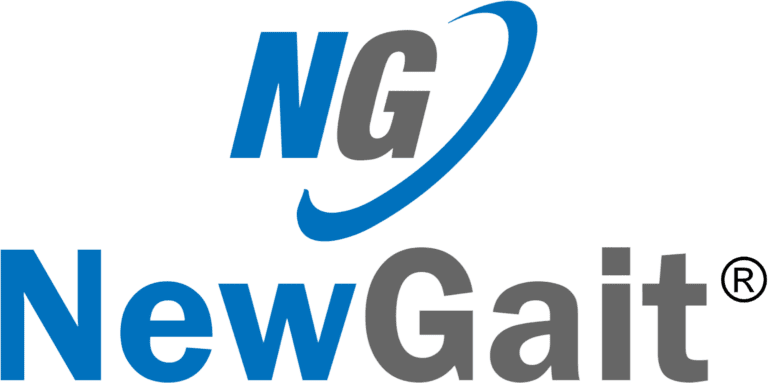Language and communication are huge struggles for many people after a TBI. But do not worry. This is where help comes in. Certain speech therapy exercises will help a survivor get their communication skills again. The best part is that you are speaking your words effectively in no time!
Speech disorders, including aphasia, dysarthria, and apraxia of speech, are common outcomes of a brain injury. This makes talking and communicating with others very challenging for survivors. Not to worry, though: speech therapy helps!
They might focus on strengthening the articulatory muscles during word production or higher-functioning, more complex aspects of brain utilization during communication. It is all about finding the best way to support each individual.
Speech After Brain Injury
Well, now understanding the workings of speech is going to be helpful before we begin facing the stellar speech therapy exercises for traumatic brain injury. Have you ever wondered how those thoughts brewing in your mind somehow transformed into understandable words?
Speaking physically involves air in our lungs sweeping past our vocal cords to initiate sound. Then, our mouth and tongue muscles form the sound into words. Intellectually, our brains equate words to meanings while turning words into sentences, process responses from others, and even make constant adjustments based on this interaction.
It is no wonder that even this simple procedure involves the conjoint work of different brain parts. While communicating, the brain is supposed to:
- Coordinating the muscles to formulate words, noticing when to breathe and swallow.
- By keenly listening to what the other person is saying.
- Reading of facial expressions and body language
- Remember what has been said, and think of an appropriate response.
For this reason, speech therapists use evaluations to determine exactly which aspects of speech have been impaired, so the most helpful exercises to restore speech can be utilized.

Approaches to Improve Aphasia by Speech Therapy
Aphasia is tricky; it complicates one’s ability to use or understand language. Sometimes, people with aphasia find creating sentences too hard, called expressive aphasia.
On the other hand, there’s receptive aphasia, wherein comprehension presents a problem with language. Sometimes, one deals with both, and we refer to it as global aphasia.
Now, for those in pain with TBI, here is some good news: you actually can help improve your aphasia! Yes, you heard it right. Speech therapy activities are available that would just help people with this particular condition. Join us as we go in search of them:
Strengthening the Tongue
Next, stick your tongue out again. This time, with the stick against your tongue, press it gently towards your mouth while pushing the far end of the stick at the same time with the help of your tongue as if you are trying to push it away. Maintain the position for approximately 5 seconds.
Finally, place the stick on the roof of your tongue as you would in a doctor’s office. Then, push your tongue to the stick without moving the stick. Hold this for another 5 seconds.
Articulation Exercises of Tongue
These activities, just like those exercises for dysarthria, help strengthen your tongue and work on somewhat different aspects. They aim to refine, not through muscular strengthening, but rather how your tongue moves. Not focusing on building force within those muscles but looking to enhance the range and ease with which your tongue moves.
Practice saying phrases or sentences that include various motions of your tongue. Start simple, like “red lorry, yellow lorry” or “eleven benevolent elephants” to warm up.
With heightened confidence, gradually challenge yourself with more complicated elocution articulate sentences incorporating a variety of sounds. This sharpens articulation and builds confidence in speech patterns that require precise tongue positioning.
Visualization and Naming
Besides that, the isomorphic visualizations can be transformational in retrieving language. In this task, the participants are exposed to a photograph or drawing picture and are asked to name what they see.
With expressive aphasics, start with simple, common objects and progress to more complex ones as success is mastered. These types of exercises can be further extended by requesting the individual describe how the object is used or relate a personal story related to the object; in this way, both naming and narrative skills are further developed.
Repetition Exercises
Practice usually brings about improvement in speech. Repetition drills involve repeated repetition of the words or phrases that help one practice the pronunciation and usage. Choose those words and phrases that the patient uses frequently or can be difficult for them.
With time, it gives way to more fluency and confidence in speech. After all, practice makes perfect; every little count in repetition drills contributes a lot to that big leap in speech capabilities.
Singing Speech Therapy
Amazingly, even when aphasia paralyzes the ability to speak a single word, many still retain the power of song in their voice. The secret seems to be contained within our creative right brain hemisphere, which lights up when we sing. This doesn’t rely as heavily on the language-based sections of our brains. That’s why some of the best speech therapy tricks for TBI involve music.
Try playing some familiar songs and encourage the person to sing along. The rhythm and cadence of singing may more easily access language production and activate preserved neural pathways.
It is good to begin with already-known songs in that these will evoke memory more naturally and make the activity pleasurable. Gradually introduce new songs in order to increase the level of challenge for engagement and new vocabulary.
Group Singing Sessions
Group singing and music therapy can have possible social and communicative benefits. The shared musical experience and supportive environment could lower some anxiety connected with speech difficulty, helping build a sense of community and connection. Such sessions would be more likely to encourage participants’ free expression toward language development, coupled with emotional states.
Games
You will find that playing games is an entertaining way to hone your language. Many games incorporate some aspect of language into their structure, and they can target basic language skills.
Take Pictionary or Charades, for instance; these games enhance word recall abilities. Scattergories also help build up not just your effective word recall but also your categorization skills.
And then there is Taboo, which allows you to do quite a bit of work with both your expressive language-what you say-and your receptive language-what you understand. You can also mix words with non-verbal behavior for added variety.
Role Play
However, role-plays can offer realistic conditions for practicing the language. Preparation of scenarios addressing everyday situations the individual may be confronted with, such as ordering food, directions, or simply making a telephone call, should be safer ways of practicing conversational skills.
Such repetition and familiarity in situations may help build language confidence and enable its natural use in a real-life environment. Indeed, role-plays create conditions that foster spontaneity of language use, developing creativity and adaptiveness in getting things across.
Such a procedure sharpens not only linguistic ability but also helps in social interaction and places the person’s view in the dimension of empathy by being able to place himself in different roles and perspectives.
Interactive Reading
It combines the practice of literacy and language by allowing the individual to interactively read material that will hopefully elicit a verbal response or contextual discussion. If reading material that is interesting and pertinent to him or her is used, the exercise can be educational and pleasurable.
These can be read aloud, pausing to ask questions about what is happening or might happen—a useful activity to consolidate understanding and reinforce the use of language.
This may also involve new vocabulary that comes up and is added to their repertoire for further use in communication. Individuals share reading and develop their linguistic skills through these joint activities in a very interactive and supportive environment.
Speech Journals
A speech journal might be a very effective device for tracking the progress of language recovery and reflection. In such an exercise, participants write in the journal daily or weekly about their experiences practicing speech, any difficulties encountered, and possibly any personal improvements they feel have occurred over time.
Bottom Line
The ability to write or speak entries regularly will allow them to find patterns and identify areas that still need some practice. After all, regaining speech is a whole process: the little steps toward one incredibly important change enable people to communicate and live better.

